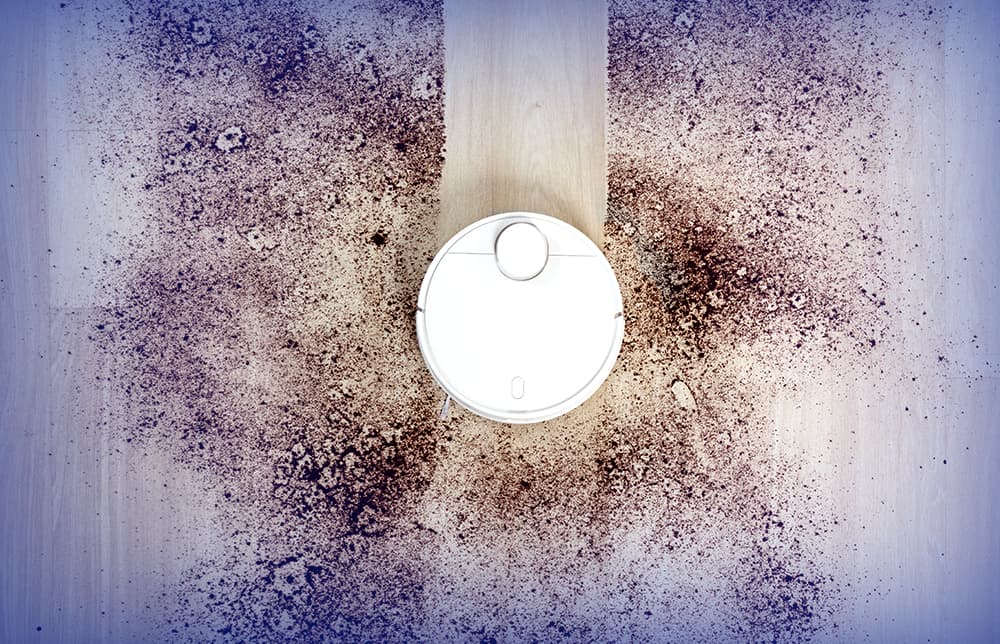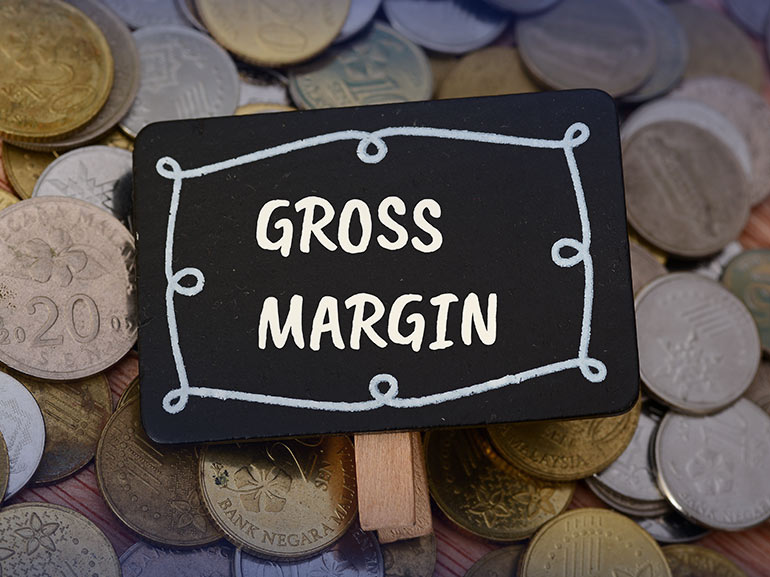iRobot Share Price Explained: iRobot Stock Trading Guide
Date Modified: 1/12/2024
iRobot Corporation is a trailblazer in the robotics industry. It introduced the first ground robots for the US Forces, the first Micro Rovers for NASA, the first self-navigating FDA-approved robots in hospitals and the first practical home robot. In 2024, iRobot remains the dominant force in the household robotic industry.
This article provides insights into iRobot Corp products and services, including how to trade its stock price.

Main Points:
- iRobot Corporation (NASDAQ: IRBT) is a pioneer and dominant force in the consumer robotic industry.
- iRobot makes money by selling its Roomba robot vacuum, the Braava robot mops, accessories and replacements, and premium subscriptions.
- In November 2005, iRobot went public on the NASDAQ with its initial public offering (IPO) priced at $24.00 per share.
- Traders can buy and sell iRobot shares CFDs on the plus500 trading platforms.
What Is iRobot Corporation?
iRobot Corporation is an international company that specialises in creating advanced robotic solutions and smart home devices to simplify household tasks and provide convenience. The company's collection of domestic robots and intelligent home gadgets are equipped with technologies for smart homes offering advanced cleaning functions, navigation, human-robot engagement, and physical task automation.
iRobot Corp. is a US-based robotic company headquartered in Bedford, Massachusetts. The company has a global reach through its offices in Europe and Asia.
How Does iRobot Corp. Make Money?
iRobot makes money through various revenue streams, they include:
Sales of Roomba Robot Vacuums
Roomba is a well-known and popular brand of autonomous cleaning devices. iRobot offers many Roomba models to cater to various cleaning needs and budgets. The company regularly introduces new Roomba models with better features and abilities, encouraging consumers to upgrade for advanced capabilities.
Sales of Braava Robot Mops
iRobot sells Braava robot mops designed to work alongside Roomba vacuums and clean floors. Braava mops also come in various grades to suit various cleaning needs.
Sales of Accessories and Replacement Parts
iRobot provides a selection of add-ons and spare parts for their Roomba and Braava models, such as brushes, filters and pads. By supplying these additional items, iRobot boosts its earnings and strengthens customer retention.
Software and Connectivity Features
iRobot introduces subscription-based premium features and services to monetise its advanced software services like Wi-Fi, enabling users to manage their devices remotely through smartphone apps or voice commands. Some of these extra features include custom cleaning plans and detailed mapping.
Collaborations and Partnerships
iRobot also plugged into the smart home ecosystem by partnering with tech giants like Google (GOOG) and Amazon (AMZN) to provide its consumers with convenient home experiences. With this partnership, iRobot gains access to a wider customer base, while its partners can leverage iRobot's products to expand their offerings.
The History and Key Developments of iRobot Corp.
iRobot was established in 1990 by a trio of MIT robotic engineers: Colin Angle, Helen Greiner, and Rodney Brooks.
The company's early years were marked by the development of innovative robotic prototypes for diverse applications. These included Genghis, a robot designed for extraterrestrial exploration, Ariel, a robot capable of detecting and eliminating underwater mines; and PackBot, a versatile robot deployed in hazardous environments, such as the aftermath of the 2001 September 11 attacks.
In the early 2000s, iRobot began producing consumer robotics. The company introduced Roomba, a floor vacuum Robot, in 2002, followed by the launch of Scooba in 2005, a floor-washing robot.
In 2005, iRobot went public on the Nasdaq. It expanded its product portfolio with notable additions like The Dirt Dog, a shop-sweeping robot, the Verro pool cleaning robot, and the Looj gutter cleaning robot.
In 2016, iRobot sold its Defense and Security business to Arlington Capital Partners for approximately $45 million. The same year, iRobot established its consumer robotic presence in China, and the following year, it expanded to Japan and Europe through the acquisitions of two prominent distributors, Sales on Demand Corporation and Robopolis, respectively.
By 2024, iRobot had surpassed 50 million in global robot sales.
iRobot Corp. Compared to the Robotic Industry
In 2024, the Household Robots market was worth $8.55 billion, with projections indicating growth to approximately $22.5 billion by 2029, with an expected CAGR (Compound Annual Growth Rate) of 18.81%.
The Asia-Pacific region is the biggest market for household robotics due to the rapid development and adoption of these devices in China, Japan, and India.
As of 2023, iRobot dominates the global home cleaning robotic market with over 50% total market share while facing competition with other prominent brands like Neato Robotics Inc., Samsung Electronics, Ecovacs Robotics Inc., and Panasonic Corporation (6752.TY).
The Financial and Stock Performance of iRobot Corp
iRobot's IPO was priced at $24.00 per share on 9 November 2005. The stock rose to an all-time high of $197.40 on 27th January 2021. In 2024, iRobot stock witnessed a decline to its lowest. For instance, on 25th April 2024, iRobot declined to an all-time low of $6.48.
Year-to-date, as of 30 August 2024, IRBT's stock price declined by 81.01%, and in the prior 12 months from 30 August 2024, its stock price declined by 81.12%.
On the same day (30 August 2024), iRobot Corporation had a market capitalisation of $218.57 million, outstanding shares of 30.23 million, a public float of $28.67 million and a negative earnings per share (EPS) of $-7.24.
Factors Affecting iRobot (IRBT) Stock Performance
- Supply Chain: Persistent supply chain issues or component shortages can lead to operational delays and increased costs, negatively impacting IRBT revenue and stock performance.
- Macroeconomics: Broader macroeconomic uncertainties, due to factors like COVID-19, can create additional operational costs and uncertainties, impacting overall business performance and stock prices.
- Product Demand: The success and adoption of iRobot's new product innovations can be a key growth driver for the company.
- Operational Costs: Rising operational costs, whether due to supply chain issues or other factors, can reduce iRobot's profitability, leading to lower earnings and negative sentiment.
- Partnerships & Acquisition: A failed partnership or acquisition, such as with Amazon in February 2024, might lead to missed opportunities for growth, affecting stock performance.
- Market Competition: Increased competition from other companies can put pressure on sales and market share, potentially affecting stock performance.
How to Trade iRobot Share CFDs
iRobot, a small-cap stock, trades under the ticker symbol 'IRBT' on the NASDAQ and is also available for trading as a Contract for Difference (CFD) on platforms like Plus500.
By entering a long or short position, traders can profit or lose from the difference between the opening and closing prices of the CFD position.
In addition, CFDs offer leverage, which can increase potential returns. At the same time it exposes traders to greater risk and losses.
Trading Hours for iRobot (IRBT) Share CFDs
IRBT shares price movement can be monitored and traded as CFDs on the Plus500 trading platforms between Monday at 3:30 PM CET and Friday at 10:00 PM CET.
*Please note that trading platform hours may vary depending on the individual operator.
Steps to Buy and Sell iRobot (IRBT) Share CFDs
To trade IRBT share CFDs with Plus500, follow these steps:
- Create a trading account with Plus500.
- Access the trading platform and search for "IRBT" on the search bar or browse the available instruments.
- Evaluate IRBT stock performance using technical analysis and fundamental analysis.
- Specify the amount of shares you wish to buy or sell.
- Specify your risk management orders, such as close-at-loss orders and close-at-profit orders.
- Confirm your buy or sell position.
Conclusion
iRobot Corporation's dominance in the consumer robotics industry is anchored on its continuous push for innovation and advanced home technology. For traders and investors, key factors to consider when evaluating iRobot's stock include its ability to navigate supply chain challenges, respond to macroeconomic shifts, and maintain competitiveness in a crowded market. Additionally, the demand for iRobot's products, its strategic partnerships, and the management of operational costs will be crucial in determining the company's future stock performance.
If you are interested in iRobot Corp. shares CFDs, you can check out IRBT share CFDs at Plus500.
FAQs
In 2024 and the preceding three years, iRobot was not profitable. Between 2021 and August 2024, the company's revenue declined by a total of 88%.
The majority of iRobot's earnings are derived from the sales of its Roomba robot vacuum.
iRobot operates within the Electronic Equipment & Parts industry and is part of the broader technology sector.
No, iRobot Corp does not pay dividends in 2024 and does not anticipate paying dividends in the foreseeable future.
Related News & Market Insights
Get more from Plus500
Expand your knowledge
Learn insights through informative videos, webinars, articles, and guides with our comprehensive Trading Academy.
Explore our +Insights
Discover what’s trending in and outside of Plus500.
Stay up-to-date
Never miss a beat with the latest News & Markets Insights on major market events.


